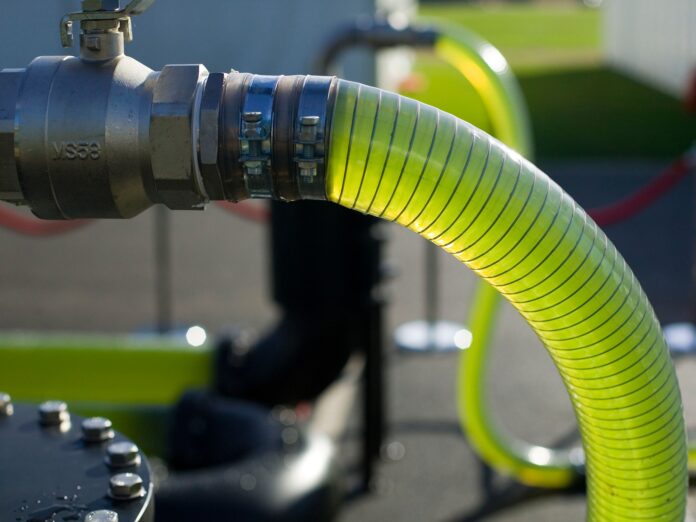A recent study by Mvelase et al., (2023) titled “The socio-economic impact assessment of biofuels production in South Africa: A rapid structured review of literature” published in Cogent Engineering by Taylor and Francis Group shows that Biofuel production has positive socio-economic impacts on GDP, employment, income, and poverty reduction.
“
Biofuel production in South Africa positively impacts the economy, employment, and poverty reduction, yet requires government support for competitiveness and sustainability. – Mvelase et al., 2023
This study explores the socioeconomic impact assessment of biofuel production in South Africa, based on a rapid structured literature review. The article explores different types and generations of biofuels, such as first-generation (1G), second-generation (2G), third-generation (3G), and fourth-generation (4G) biofuels, and their respective feedstocks and production technologies. The study also explores methods and tools that have been applied in previous studies, such as techno-economic analysis (TEA), life cycle assessment (LCA), cost-benefit analysis (CBA), social impact assessment (SIA), computable general equilibrium model (CGEM), input-output (IO) model, machine learning (ML), artificial neural network (ANN), and geographic information system (GIS). In addition, the authors summarize the main results and implications of previous studies on the economic, environmental, and social impacts of biofuels production in different countries and regions, such as Brazil, USA, Germany, China, India, Tanzania, Mozambique, and Italy. The authors also identify the factors that influence the viability and competitiveness of biofuels, such as feedstock and capital costs, government support, market conditions, and technological innovations.
Factors that influence the viability and competitiveness of biofuels
Government support: Biofuel production is often not commercially viable without government support, such as subsidies, credits, grants, and tax exemptions. Government support can help reduce the feedstock and capital costs, which are the major contributors to the net cost of biofuels.
Feedstock availability and price: The availability and price of feedstock can affect the profitability and sustainability of biofuel production. Feedstock costs account for a significant portion of the total production costs of biofuels, especially first-generation biofuels that use food crops as feedstock. Feedstock availability can also depend on the land use, climate, and agricultural practices of the region.
Production technology and scale: The production technology and scale can affect the efficiency and cost-effectiveness of biofuel production. Advanced technologies, such as enzymatic hydrolysis, gasification, and fermentation, can improve the conversion yield and reduce the environmental impact of biofuels. However, these technologies are often expensive and require high capital investment. The production scale can also influence the economies of scale and the competitiveness of biofuels relative to conventional fuels.
Market demand and price: The market demand and price of biofuels can affect the viability and competitiveness of biofuel production. The demand and price of biofuels depend on various factors, such as consumer preferences, environmental awareness, fuel quality standards, blending mandates, and the price of conventional fuels. The market demand and price of biofuels can also influence the investment decisions and the production capacity of biofuel producers.
How the study was conducted
The authors employed a rapid structured review of literature on the socio-economic impact of biofuel production, using the Scopus database and the PRISMA framework. The authors analyzed and discussed the results of the literature review, focusing on the main themes, trends, and gaps in the existing studies. The authors compared and contrasted the different methods, data sources, and indicators used to assess the socio-economic impact of biofuel production.
What the authors found
The authors found that biofuel selling prices are generally not competitive with conventional fuel prices, mainly due to high feedstock and capital costs. Therefore, government subsidies, credits, and grants are needed to stimulate biofuel production and ensure positive socio-economic outcomes. The study also shows that biofuel production stimulates economic growth, creates employment opportunities, improves household welfare, and reduces poverty, especially in rural areas.
The study found that biofuel production can reduce greenhouse gas emissions and improve health and ecosystem quality, still,it can also cause land use change, loss of natural vegetation and species habitat, food insecurity, and water scarcity, depending on the feedstock, land use, and production technology.
Why is this important
Biofuels can offer positive socio-economic benefits such as economic growth, employment creation, improved household welfare, and poverty reduction, as well as environmental benefits such as reduced greenhouse gas emissions and better health for humans and the ecosystem. Biofuel production also involves trade-offs and challenges such as food security, land use change, water availability, and natural habitat loss, which need to be carefully considered and addressed. Biofuel production is not commercially viable without government support due to the high feedstock and capital costs and the low competitiveness of biofuel prices relative to conventional fuels. Therefore, policy interventions and financial incentives are needed to stimulate biofuel production and ensure its sustainability. Advanced biofuels from non-food feedstocks and crop residues have more potential to overcome the food vs fuel dilemma and reduce the negative impacts of biofuel production on land, water, and biodiversity. However, they require more investment in research and development and technological innovation to reduce their production costs and improve their efficiency. South Africa has a great opportunity to develop its bio-economy and biofuel industry by utilizing its abundant renewable energy resources and aligning its biofuel strategy with its national development plan. However, it also faces several barriers and gaps such as lack of empirical studies, inadequate regulatory framework, and technological constraints that need to be addressed.
Study Recommendations
- The authors suggest that the government should provide financial incentives, such as subsidies, credits, and grants, to stimulate biofuel production and make it more competitive with conventional fuels. The government should also guarantee a positive profit for biofuel producers by setting a minimum price or a blending mandate for biofuels.
- The authors recommend that more resources should be allocated to R&D on biofuels, especially advanced biofuels that use non-food feedstocks and have lower environmental impacts. R&D could help improve existing technologies, reduce production costs, and develop new and eco-friendly biofuel products.
- The study also proposes that the current biofuel regulatory framework in South Africa should be revised to include support for advanced biofuels, which are currently excluded. The document argues that advanced biofuels could offer more benefits in terms of greenhouse gas emission reduction, economic growth, and social welfare than first-generation biofuels.
- In addition, the authors emphasize the need for a comprehensive and objective assessment of the environmental and social impacts of biofuel production in South Africa, especially on food security, water availability, and natural habitats. The authors suggest that biofuel production should be done cautiously and avoid competing with food crops for land and water resources.
In conclusion, the study by Mvelase et al. sheds light on the multifaceted impact of biofuel production in South Africa. While presenting a compelling case for its positive socio-economic contributions, including economic growth, employment generation, and poverty reduction, the study underscores the crucial role of government support in overcoming the inherent challenges of high feedstock and capital costs. The findings highlight the intricate balance required to navigate environmental considerations, such as reduced greenhouse gas emissions, against potential drawbacks like land use change and water scarcity. The recommendations emphasize the need for strategic policy interventions, increased research and development in advanced biofuels, and a revised regulatory framework to foster a sustainable and competitive biofuel industry in South Africa. As the nation stands at the crossroads of bioeconomic potential, careful and comprehensive planning becomes paramount to maximize benefits while minimizing environmental and social risks.

Question for Contribution and Comments
Dear reader, we value your input! Kindly share your thoughts, ideas, and comments regarding the question below in the comment section. Your valuable input will help shape our next article:
“Can South Africa successfully balance the promising socio-economic benefits of biofuel production with the critical environmental and social considerations, and what innovative strategies should be prioritized to navigate this complex challenge?”
















 The African Research (AR) Index is a comprehensive scholarly directory and database focused explicitly on journal publishers that publish and disseminate African research.
The African Research (AR) Index is a comprehensive scholarly directory and database focused explicitly on journal publishers that publish and disseminate African research.


It’s a delicate balance, but I believe investing in advanced biofuels and stringent regulations can help South Africa lead the way. What are your thoughts on incentivizing cleaner technologies?
The trade-off is real! We need to ensure benefits for our economy without compromising our environment. How about exploring more sustainable feedstock options and local community involvement?
Great insights! But what about involving local communities in decision-making? Their input could help address concerns and ensure biofuel initiatives truly benefit everyone